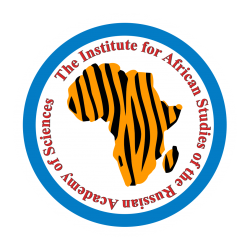Author:
Abstract:
From the perspective of current political and military confrontation, many world nations are challenged to balance independence and development. It is the digital and informational defense that has raised a special attention when the world market of IT-technologies has been controlled by several big monopolies. Because different countries have faced similar problems in the sphere of digital state policy, the fresh opportunity has emerged for international cooperation that has not yet been critically assessed. Revaluating aspects of informational war in the social domain, the article places a special emphasis on education, public opinion manipulations and youth struggle. These interconnections are urgent for the Russian Federation, as they are for those African nations that have an ever-growing youth burden and national systems of education under constant attempts of reconstruction.
Although the development of digital technologies is claimed to be a priority in the development of all spheres of public life in African countries, the current situation in the digital technology market is actually turning into a new kind of dependence. In the field of socio-political destabilization, this can be clearly seen while analyzing the role of social media in organizing socio-political protests in different countries of Africa, when young people become the main object of manipulation in the information space. The growth in the percentage of young people among the population exacerbates many unresolved issues of national educational systems. A decade ago the digitalization of education seemed to be a new hope for Africa. However, in practice, the success of some subsidized digital projects has shown that digitalization cannot replace development of integral education systems and exposes new challenges – access of new technologies for different levels of population, children’s Internet addiction and cyberbullying, the loss of cultural identity because of necessity to follow the requirements of sponsors.
Summarizing these problems in different countries of the continent, the article highlights directions of possible cooperation that could contribute to the formation of a sustainable system of informational security including ensuring hardware and software independence, digitalization of public administration, development of alternative digital tools for social interaction, development and support of a digital educational platforms, support for an independent cultural and religious policy, online security for children and teenagers.
Keywords:
digital security, media policy, Russia-Africa cooperation, digital education, youth policy, social media, protests
DOI:
10.31132/2412-5717-2022-61-4-48-59
References:
1. #ENDSARS prayer walk National Stadium Surulere, Lagos. https:// https://www.youtube.com/ watch?v=keAT89_1YXg (accessed 01.09.2022)
2. Africa Internet Users, 2022 Population and Facebook Statistics. Internet World Stats. https://internetworldstats.com/stats1.htm (accessed 20.08.2022)
3. DigiSchool. Information and Communication Technology Authority (Kenya). http://icta.go.ke/ digischool/ (accessed 24.09.2022)
4. Fituni L. «Arab Spring»: Transformation of Political Paradigm in Context of International Relations (In Russ.). World Eсonomy and International Relations, 2012, № 1, p. 3–14. DOI: https://doi.org/10.20542/0131-2227-2012-1-3-14.
5. From Jubilation to Condemnation: Kenya’s Digital Literacy Programme – Top Tips for Success. Panoply Digital. https://www.panoplydigital.com/blog/from-jubilation-to-condemnation-kenyas-digital-literacy-programme-top-tips-for-success (accessed 22.08.2022)
6. Gaible E. Digital Transformation for School-Age Children Education: International Experience, Trends, Global Recommendations (In Russ.). Sovremennaya analitika obrazovaniya. Moscow, NIU VSHE, 2019.
7. Improving the quality of teacher education in Sub-Saharan Africa: lessons learned from a UNESCO-China Funds-in-Trust project. UNESCO. https://www.gcedclearinghouse.org/sites/default/ files/resources/190180eng.pdf (accessed 12.10.2022)
